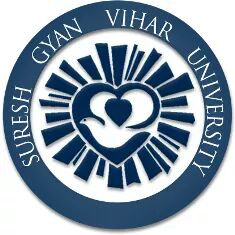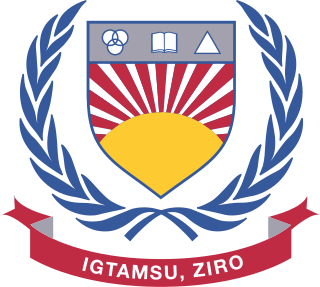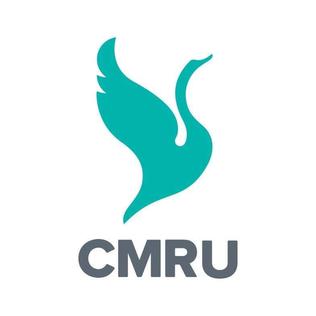Related Research Articles
In India, a deemed university or deemed-to-be-university is an accreditation granted to higher educational institutions in India by the Ministry of Education. According to the ministry's definition, the accreditation indicates, "an Institution of higher education, other than universities, working at a very high standard in specific area of study" and the accreditation grants "the academic status and privileges of a university".

University Grants Commission is a statutory body under Department of Higher Education, Ministry of Education, Government of India. It was set up in accordance to the UGC Act 1956 and is charged with coordination, determination and maintenance of standards of higher education in India. It provides recognition to universities in India, and disbursements of funds to such recognized universities and colleges. The UGC headquarters are in New Delhi, and it has six regional centres in Pune, Bhopal, Kolkata, Hyderabad, Guwahati and Bangalore. A proposal to replace it with another new regulatory body called HECI is under consideration by the Government of India. The UGC provides doctoral scholarships to all those who clear JRF in the National Eligibility Test. On an average, each year ₹725 crore (US$87 million) is spent on doctoral and post-doctoral fellowships by the commission.

West Bengal University of Health Sciences (WBUHS) is a Public medical university in Kolkata, West Bengal, India. It was established in 2003 by an Act of the West Bengal Legislative Assembly for better management of the health and medical education-related courses. The main aim of establishing the university is to upgrade the level of medical teaching in the state.

Suresh Gyan Vihar University (SGVU) is a private university located in Jaipur, Rajasthan, India. The university was established through the Suresh Gyan Vihar University, Jaipur Act of the government of Rajasthan. Its predecessor institution, Gyan Vihar College, Jaipur, had been in existence since 1999. Its parent institution, Sahitya Sadawart Samiti, was founded in 1938.
Department of Higher Education is the department under Ministry of Education, that oversees higher education in India.

Central universities in India are public universities established by an Act of Parliament and are under the purview of the Department of Higher Education in the Ministry of Education, except for nine universities which are under the purview of other ministries. In general, universities in India are recognised by the University Grants Commission (UGC), which draws its power from the University Grants Commission Act, 1956. In addition, 15 Professional Councils are established, controlling different aspects of accreditation and coordination. Central universities, in addition, are covered by the Central Universities Act, 2009, which regulates their purpose, powers, governance etc., and established 12 new universities. As of June 2023, the list of central universities published by the UGC includes 56 central universities.
In India, state universities are run and funded by the state government of each of the states of India.

The Senate of Serampore College (University) is an ecumenical regulatory and affiliating body for Christian theological education, which works in partnership with Bible colleges, seminaries and theological research institutes in the Indian subcontinent that comply with its regulations and standards. It is located in Serampore in West Bengal, India. Serampore was granted the status of university by King Frederick VI of Denmark in 1829.

Vinayaka Mission's Research Foundation is a UGC, Government of India recognized private deemed-to-be-university located in Salem, Tamil Nadu, India. In 2015, the university was accredited by National Assessment and Accreditation Council.
St. Joseph's University is a private aided, Jesuit, higher educational institution run by the Karnataka Province of the Society of Jesus in Bangalore, Karnataka, India. It is one of the oldest educational institution in the state of Karnataka with a history of 142 years. It has been conferred with the award College of Excellence by the University Grants Commission (India). The institution was awarded a rating of A++ (3.79/4), in the 4th cycle of re-accreditation by the National Assessment and Accreditation Council (NAAC) in 2017. It offers graduate, post-graduate and research education. St. Joseph's University has around 300 teaching and non-teaching staff and more than 5500 students. The university is located at Langford Road near Richmond Circle, Bengaluru, Karnataka, India.

The Ministry of Education (MoE) is a ministry of the Government of India, responsible for the implementation of the National Policy on Education. The ministry is further divided into two departments: the Department of School Education and Literacy, which deals with primary, secondary and higher secondary education, adult education and literacy, and the Department of Higher Education, which deals with university level education, technical education, scholarships, etc.

St. Peter's Institute of Higher Education and Research (SPIHER) is a private deemed to be university located in Paruthipattu in Tiruvallur district, Tamil Nadu. The institution was promoted by the politician M. Thambidurai and managed by his wife. This is a Deemed-to-be University established in 2008 under Section 3 of the UGC Act,1956 The Institute is located in Paruthipattu revenue village of Poonamallee taluk which is 3 km far away from Avadi railway station The institute has its campus with 32.26 acres of land with a built-up area of 66,875 square metres (719,840 sq ft). It is recognised by the University Grants Commission (UGC) and is accredited by the National Assessment and Accreditation Council (NAAC). It is also approved by the All India Council for Technical Education (AICTE).
Karpagam Academy of Higher Education (KAHE) is a private deemed to be university, located in Coimbatore Tamil Nadu, India. It was established under Section 3 of UGC Act 1956 is approved by Ministry of Human Resource and Development, Government of India. Dr.R.Vasanthakumar, the president of the trust a philanthropist, industrialist, entrepreneur and culture promoter.

Indira Gandhi Technological and Medical Sciences University (IGTAMSU), is a private university located in Ziro, Arunachal Pradesh providing higher education in nursing, yoga, paramedical, physiotherapy, management, law. The University was established in 2012, when the Legislative Assembly of Arunachal Pradesh passed Indira Gandhi Technological And Medical Sciences University Act 2012. The Indira Gandhi Technological And Medical Sciences University is accredited and recognized by the University Grants Commission under the section of 2(f) of UGC Act 1956.
Government Degree College, Dooru also known as Degree College GDC Duru is a University of Kashmir affiliated non-autonomous degree college located in Dooru in the Anantnag district of Jammu and Kashmir, India.

CMR University is a private university located in Bangalore, Karnataka, India. CMR University (CMRU) has been established and is governed by the CMR University Act of 2013. CMRU aims to promote and undertake the advancement of university education in law, technical, health, management, life sciences and other allied sectors of higher and professional education. CMR University is also recognized by AIU.

B.E.S.T Innovation University (BESTIU), or by its full name Bharatiya Engineering Science and Technology Innovation University, is a private university located in Gownivaripaill, Gorantla in Andhra Pradesh, India.
References
- ↑ "UGC Act-1956" (PDF). mhrd.gov.in. Secretary, University Grants Commission. Retrieved 1 February 2016.
- ↑ "The University Grants Commission Act, 1956 (As modified up to the 20th December, 1985) and Rules & Regulations under the Act" (PDF). University Grants Commission (India) . Retrieved 4 January 2015.
- ↑ Dhar, Aarti (3 June 2012). "UGC defers plan to allow entry of foreign varsities". The Hindu . The Hindu Group . Retrieved 4 January 2015.